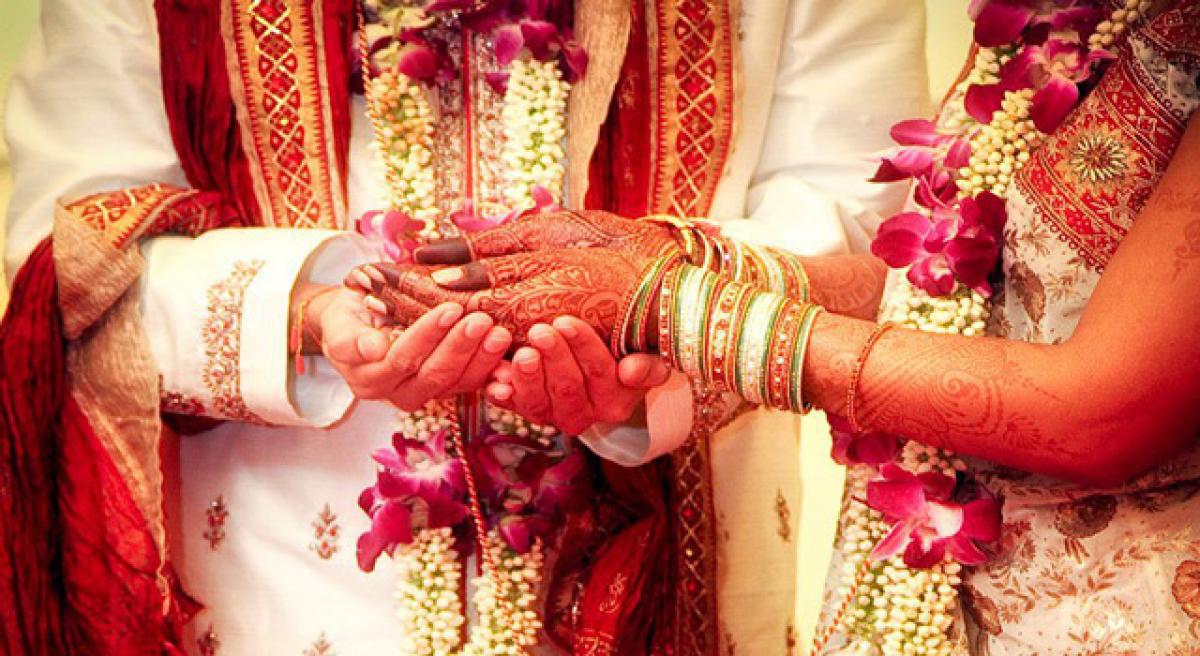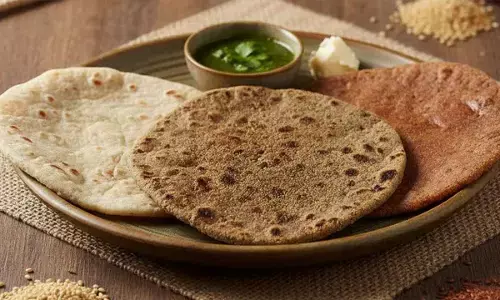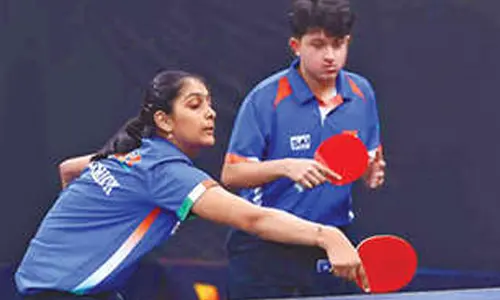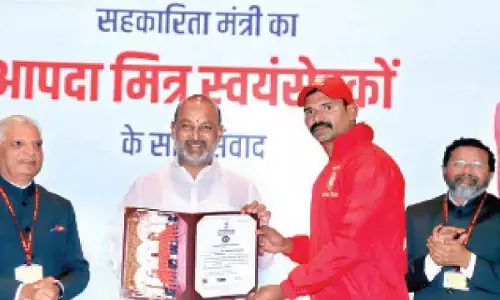Wedding rituals from around the country

You can\'t deny the fact that we Indians take our weddings very seriously. The whole affair is associated with a lot of taam jhaam.
You can't deny the fact that we Indians take our weddings very seriously. The whole affair is associated with a lot of taam jhaam. The best part about Indian weddings is that since we're home to so many cultures, every single wedding is different. An Indian wedding is truly a sneak peek into the rich and diverse culture of our country.
From the joota chhupai to the mehendi and the little banter between the two sides, Indian weddings are replete with quirky traditions that add to the charm of weddings. Here are some absolutely crazy things that happen only at desi wedding
At Bihari weddings, the bride has to carry earthen pots on her head and greet elders
This one just takes the idea of a sanskari bahu to the next level. The mother-in-law mounts a couple of earthen pots on her bahu's head and the new bride is supposed to bend and touch the feet of elders while balancing those earthen pots! Apparently, it's a marker of how well she can balance her own household. There could be other ways to test it out but well, okay then!
At a Gujarati wedding, the groom's feet are washed and then he gets to drink the potion!
That Gujarati mother-in-laws are allowed to pull the nose of the groom is known to everyone. However, madhuparka is another interesting ceremony where the feet of the groom are washed in milk and honey, which he has to then drink up.
Malayali weddings have only 3 pheras!
Malayali weddings don't seem to believe in the concept of a big, fat wedding. You just need to take 3 pheras and once the groom has tied a yellow thread around the neck of the bride, you're married!
A town in UP welcomes the groom's family with tomatoes, potatoes and abuses!
Sarsaul is a small town in Kanpur district which gives hospitality at weddings a different definition altogether! The groom's family is greeted by hurling tomatoes and potatoes at them, followed by a round of the best abuses around! It's all a part of a tradition that believes that relationships that begin on a sour note culminate in love.
In Tamil Brahmin weddings, the groom has to be stopped from running away
Sounds awkward, doesn't it? But according to a custom, the groom is supposed to walk out of the mandapam right before the wedding rituals begin. He just decides he'll opt for the life of a sanyasi and the father of the bride then has to convince him to marry his daughter. Of course, the groom eventually returns but this really adds to the Indian family drama, doesn't it?
At Punjabi weddings, when someone says 'jaago,' they mean it!
Punjabis really know how to party and this pre-wedding ceremony is another example of this. Jaago literally means wake up in Punjabi and that's what the families of those getting married tell people around them. It's another excuse to party all night long but the ladies carrying decorated earthen pots on their heads really add to the happy air at the wedding.
In Rajasthan, the groom is greeted by an attacking bride
According to the toran bandana tradition, the bride is allowed to attack the groom with a.....sword. Yes, that sharp weapon, just to see if he ducks or gets injured. This is a simple test of his fitness. Thank god it's only a mock play!
Kumaoni weddings use flags to add that royal swag
In a move which would now be considered very GoTesque, the groom's entourage uses a white flag and the bride's side uses a red flag to signify the two different sides. The cute part is that the the whole entourage comes back guided by red flags.
At Sindhi weddings, the groom should be ready to get his clothes torn
Sounds weird? But the meaning behind this tradition is deep. Before the wedding, the groom gets his clothes torn by his family and friends to signify that he has left his past behind and is entering a new stage of life. This ceremony only adds to the fun.













